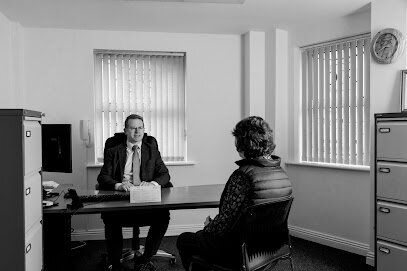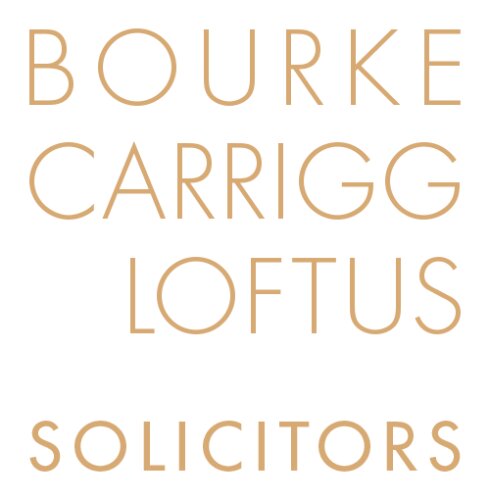Best Renewable & Alternative Energy Lawyers in Ireland
Share your needs with us, get contacted by law firms.
Free. Takes 2 min.
Or refine your search by selecting a city:
List of the best lawyers in Ireland
About Renewable & Alternative Energy Law in Ireland
Ireland has rapidly become a key player in the renewable and alternative energy sector, striving to reduce carbon emissions and promote sustainable development. The Irish government has set ambitious targets to transition from reliance on fossil fuels to greener sources such as wind, solar, bioenergy, and hydro power. This shift is primarily driven by European Union directives, national policy, and a growing recognition of environmental responsibility. As a result, the renewable energy sector in Ireland is highly regulated and continues to evolve with technological advancement and environmental needs. Understanding the legal framework is crucial for anyone engaging in this dynamic field, from individual landowners to large corporations.
Why You May Need a Lawyer
Legal advice is essential in the renewable and alternative energy sector for a variety of reasons. These include navigating complex regulatory requirements, negotiating land use agreements, securing permits, structuring finance deals, ensuring environmental compliance, and resolving disputes. Whether you are a developer seeking planning permission for a wind farm, a homeowner installing solar panels, or a business investing in bioenergy, legal issues can arise at any stage. A lawyer specializing in renewable energy can help you understand your rights, manage risks, comply with regulations, and protect your interests, saving you time, money, and potential legal complications.
Local Laws Overview
Ireland’s legal framework for renewable and alternative energy includes a combination of national laws, European Union regulations, and local planning guidelines. Key aspects include:
- Planning and Development Acts: Projects like wind farms or solar arrays typically require planning permission from the relevant local authority. Environmental Impact Assessments (EIAs) may also be mandated.
- Electricity Regulation Act: Overseen by the Commission for Regulation of Utilities (CRU), this act governs the generation, licensing, and supply of electricity from renewable sources.
- Renewable Energy Support Schemes (RESS): The government provides financial incentives for renewable energy projects under specific support schemes.
- Grid Connection: Access to the national grid is regulated, requiring applications and compliance with technical standards set by EirGrid and ESB Networks.
- Land Use and Environmental Law: These govern how land can be developed for renewable energy and ensure compliance with nature conservation, habitats, and pollution controls.
- Health and Safety Legislation: Regulations ensure the safety of energy installations, workers, and the public.
Frequently Asked Questions
What types of renewable energy are most common in Ireland?
Wind energy is the most prominent, followed by solar, hydro, and bioenergy. Offshore wind is also gaining traction as technology develops.
Do I need planning permission to install solar panels?
Small-scale, domestic solar installations may not require planning permission due to recent exemptions, but larger or commercial systems typically do.
How do I connect my renewable energy project to the electricity grid?
You must apply for connection through EirGrid or ESB Networks. The process involves compliance with technical, safety, and regulatory standards.
What government supports are available for renewable energy projects?
Schemes such as the Renewable Electricity Support Scheme (RESS) and grants from the Sustainable Energy Authority of Ireland (SEAI) provide financial assistance.
Are there special requirements for environmental impact assessments?
Yes, certain projects, especially large wind or solar farms, require comprehensive environmental impact assessments as part of the planning application.
Who regulates the renewable energy sector in Ireland?
The Commission for Regulation of Utilities (CRU) is the main regulator, responsible for overseeing the electricity and natural gas networks in Ireland.
Can farmers develop renewable energy projects on their land?
Yes, but they must comply with zoning, planning, and environmental laws, and often require expert legal advice to negotiate agreements and permissions.
What legal issues might arise in community renewable projects?
Issues can include funding, governance, land ownership, permits, and the distribution of both responsibilities and benefits among members.
How are disputes related to renewable energy resolved?
Disputes may be settled through negotiation, mediation, arbitration, or court proceedings, depending on the issue and contracts involved.
What is the role of EU law in Irish renewable energy?
EU directives and regulations shape much of Ireland’s renewable policy, setting targets for renewable energy use, emissions, and environmental protection.
Additional Resources
For those seeking further information or support about renewable and alternative energy in Ireland, the following organizations and bodies may be useful:
- Sustainable Energy Authority of Ireland (SEAI): Provides grants, guidance, and information on renewable energy.
- Commission for Regulation of Utilities (CRU): Regulates the energy sector and can provide information on licenses and compliance.
- EirGrid and ESB Networks: Manage the electricity grid and offer resources for prospective energy generators.
- Irish Wind Energy Association (IWEA): Represents the wind industry and provides sector updates.
- Department of the Environment, Climate and Communications: Sets policy and strategy for Ireland’s energy transition.
- Environmental Protection Agency (EPA): Oversees environmental regulation and compliance.
- Local Authorities: Manage planning applications and permits for renewable energy projects in their regions.
Next Steps
If you need legal assistance in the renewable and alternative energy sector in Ireland, consider the following steps:
- Identify the specific legal issue or question you face, whether it concerns planning, finance, grid connection, regulation, or dispute resolution.
- Gather relevant documents, such as planning applications, land ownership records, contracts, or correspondence with authorities.
- Research and contact lawyers or firms with expertise in renewable and alternative energy law. Check their experience in energy projects similar to yours.
- Prepare a clear summary of your objectives and any questions you have for your legal advisor.
- Engage your lawyer early to ensure compliance with all legal requirements and to avoid costly errors or delays.
Staying informed and seeking professional guidance are essential for a smooth and successful experience in Ireland’s renewable and alternative energy sector.
Lawzana helps you find the best lawyers and law firms in Ireland through a curated and pre-screened list of qualified legal professionals. Our platform offers rankings and detailed profiles of attorneys and law firms, allowing you to compare based on practice areas, including Renewable & Alternative Energy, experience, and client feedback.
Each profile includes a description of the firm's areas of practice, client reviews, team members and partners, year of establishment, spoken languages, office locations, contact information, social media presence, and any published articles or resources. Most firms on our platform speak English and are experienced in both local and international legal matters.
Get a quote from top-rated law firms in Ireland — quickly, securely, and without unnecessary hassle.
Disclaimer:
The information provided on this page is for general informational purposes only and does not constitute legal advice. While we strive to ensure the accuracy and relevance of the content, legal information may change over time, and interpretations of the law can vary. You should always consult with a qualified legal professional for advice specific to your situation.
We disclaim all liability for actions taken or not taken based on the content of this page. If you believe any information is incorrect or outdated, please contact us, and we will review and update it where appropriate.
Browse renewable & alternative energy law firms by city in Ireland
Refine your search by selecting a city.
















